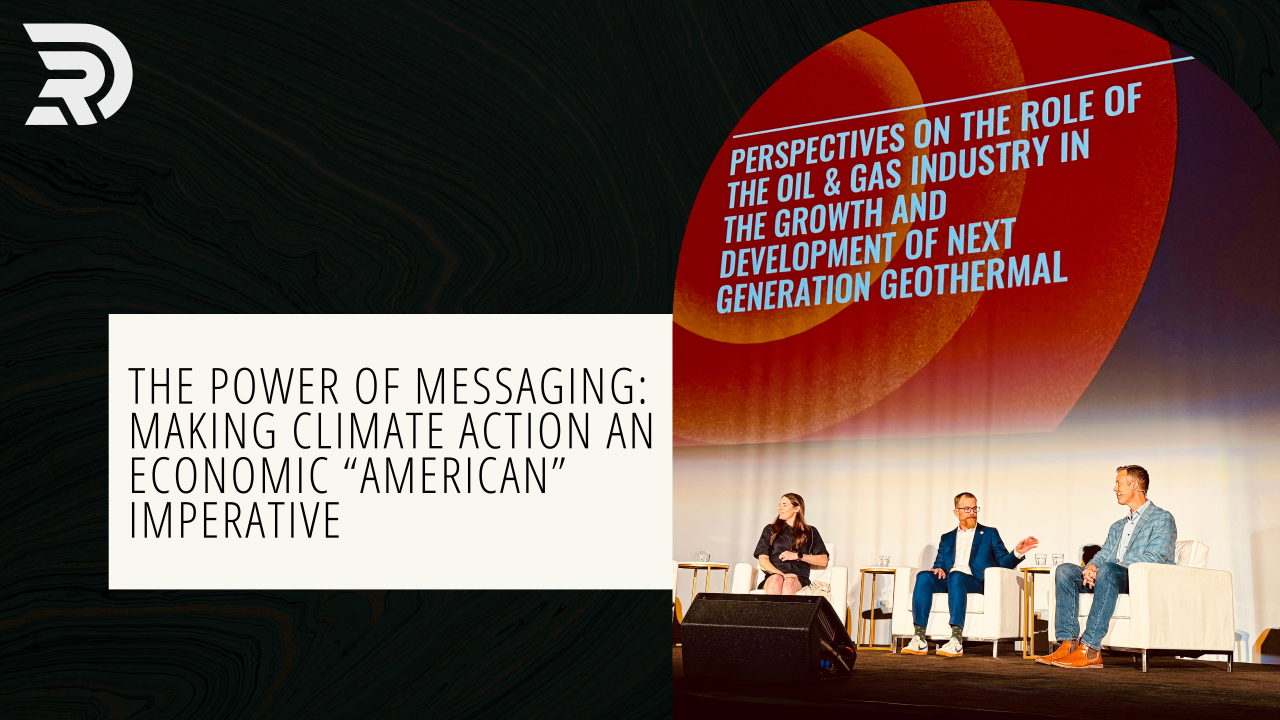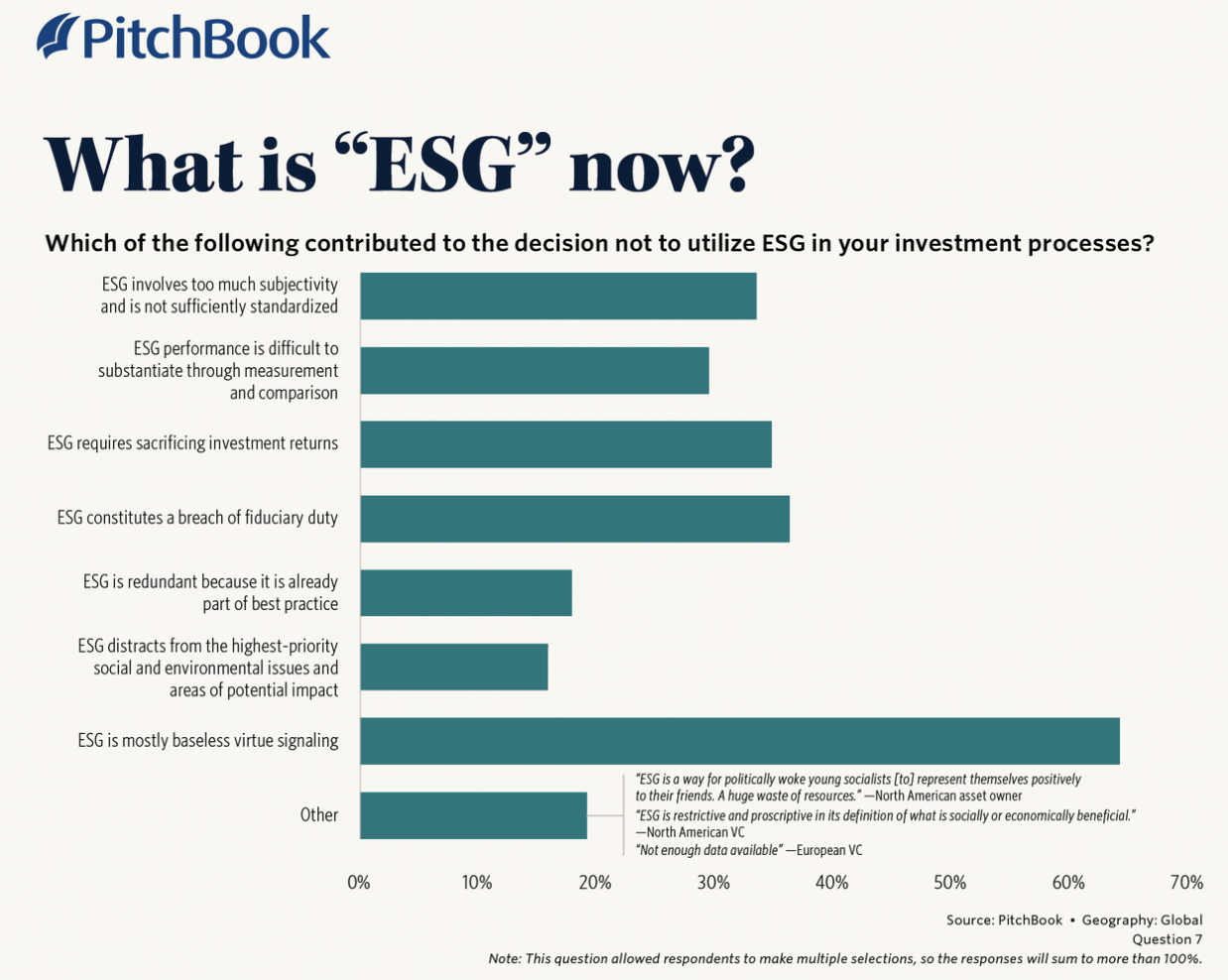The Power of Messaging: Making Climate Action an Economic “American” Imperative
At Climate Week NYC, one of the most compelling themes was the potential for climate action to unite seemingly disparate groups. A recent study from NYU shows that framing climate action as patriotic and essential for preserving the "American way of life" can significantly increase support for climate initiatives across political lines. This approach emphasizes that sustainable practices aren't just ethical but also practical. And the investment community is beginning to take notice.
The latest report from PitchBook echoes this sentiment, highlighting a fundamental shift: while values have traditionally driven ESG (Environmental, Social, and Governance) initiatives, there is an increasing focus on demonstrating their financial returns. This change highlights the growing importance of effective brand messaging, which not only supports a sustainable investment thesis but also strengthens a company’s position when raising capital. By clearly communicating the financial benefits of sustainability and climate-positive actions, businesses can attract investors who prioritize both impact and profitability. This approach doesn’t just resonate with investors. It also speaks to customers, businesses, and a general population tired of polarizing climate messaging, offering a more unifying perspective emphasizing shared economic interests and stability.
PitchBook Sustainable Investment Survey 2024
A Win-Win Approach: Economic Stability and Long-Term Returns
For growth-stage climate technology brands, this shift means more than just talking about reducing carbon footprints or saving the planet—it's about aligning sustainability with economic stability, social stability, and long-term returns. Investors are looking for proof that sustainable practices can deliver financial results, not just moral satisfaction. By linking climate action to preserving established norms, companies can reassure stakeholders that sustainability aligns with their interest in maintaining the status quo. This dual focus can bridge the gap between skeptical investors and “ESG” advocates by showing how climate action is good for the Earth and business.
During Climate Week, we saw this messaging in action. Steve Roest's keynote at the Geothermal House was a standout moment. His bold declaration to "bridge the gap between oil and gas and environmentalists" highlighted that real progress requires collaboration and open dialogue—even between industries that have traditionally been at odds. This resonated deeply with us and aligned with PitchBook’s finding that investors are increasingly concerned with how ESG efforts translate into operational resilience and financial stability.
In fact, at R&D B2B Marketing, we don’t even use “ESG” in most messaging for our clients; it’s a sinking concept. Reframed, however, the concept without the acronym paired with relevant results can mean the difference between “making it” as a startup and growth-stage brand and not making it given the current capital environment.
Crafting Messaging That Resonates with Investors & Stakeholders
For brands aiming to attract capital, talent, and customers, crafting messages that resonate with both value-driven and financially-driven stakeholders is essential. At R&D Marketing, we specialize in helping complex brands navigate this nuanced landscape. Our approach involves creating messaging that highlights not only the ethical importance of climate action but also its economic advantages.
For example, when framing your brand's sustainability initiatives, it's not enough to say you're moving to renewable energy or a Certified B-Corp. You must show how these actions will lower operational costs, mitigate risks, and improve long-term profitability. This kind of messaging doesn't just appeal to the heart—it speaks directly to the cap table.
Transforming Climate Action from a Divisive Issue to a Unifying Cause
The PitchBook report also emphasizes the need for transparent reporting and robust data collection to build stakeholder trust. Brands must position themselves as not only environmentally conscious but also operationally efficient. This means using reliable data and transparent communication to demonstrate the tangible benefits of your climate-friendly practices. By framing climate action as a means to preserve what is familiar and valuable—like jobs, economic growth, and American industry—climate messaging becomes less divisive and more unifying.
During Climate Week, many industry leaders echoed this theme of collaboration and alignment. The consensus? When it comes to sustainability, we don't compete—we collaborate. This is a powerful reminder that, whether we're talking to investors, customers, or policymakers, effective climate messaging can transform climate action from a divisive issue into a unifying cause.
Key Takeaway: Build Bridges, Not Walls
If your brand wants to connect authentically and effectively with both sides of the aisle, consider framing your climate solutions to resonate with existing cultural and economic values. Let's move beyond the polarizing rhetoric and focus on the benefits that unite us all: economic stability, long-term returns, and a sustainable future—preserving the way of life we value.
At R&D Marketing, we're here to help you navigate this complex brand-messaging landscape. By aligning your brand's climate initiatives with ethical imperatives and financial goals, we can help you craft compelling messages that resonate with investors, attract talent, and build lasting customer relationships.


